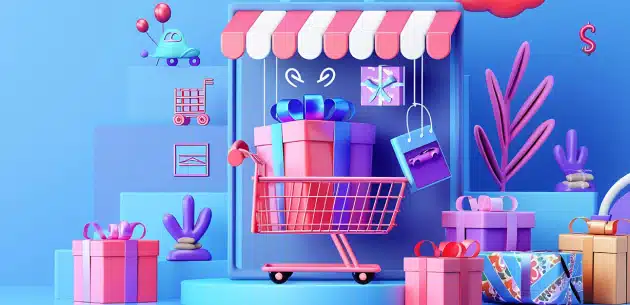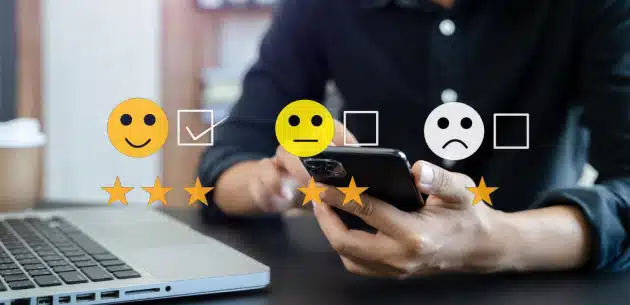
In the last decade, traditional and eCommerce brands were introduced to influencer marketing. A type of marketing where brands can lean on the reputation of influencers to market their brand or product. This decade has something else to offer, called the creator economy. The creator economy stems from the ground that more consumers now use social media and digital platforms to connect with and engage creators directly, eliminating the need for a middleman.
The creators in question can include musicians, designers, artists, writers, dancers, and other creatives who utilize technology to build a community. These creators become their own influencers, having the power to influence their audience to engage their brand and products. The creator economy eliminates the need for creatives to pay influencers to create awareness for their brand or products. Instead, creatives get to maintain a one-to-one relationship with their community, without depending on social media algorithms.
We can say that the creator economy is similar to the direct-to-consumer business concept. Creatives who had to sell ads on their platform to make profits before don’t need to now. They can make profits from members of their audience who might crowdfund the project or pay for subscription access.
Challenges and Opportunities of the Creator Economy to Brands
In today’s creator economy industry, brands will find that hiring creators to merely promote their product is no longer enough. Consumers are now constantly exposed to high-quality creative content produced by content creators. This has led to a higher expectation for the style and standard of content brands must produce.
Additionally, the creator economy fosters fragmentation of audiences, which encourages consumers to consume only the type of content they are interested in. It will become more challenging for brands to generate desired results when they create theme-based marketing content. This is because only the consumers who are interested in such themes will engage it. Simply put, if, for example, you create marketing content using a football game theme, only consumers who are interested in football will engage it.
Another challenge brands face is the lack of transparency in the algorithm of social and digital platforms.
However, the creator economy is not all challenges and no opportunities. Brands with loyal and engaged followings can leverage the creator economy to create meaningful connections with target audiences on diverse mediums. Social media platforms such as Pinterest, Clubhouse, TikTok, Twitter Spaces all now foster direct engagement between brands and consumers.
How Can Brands Foster Creative Connection in the Creator Economy Industry
There’s a saying; if you can’t beat them, join them. Well, there’s no need to attempt to beat them in the first place, so let’s go straight to joining them. A few brands have launched features and initiatives to support the growing creator economy. Instagram launched its first local festival called NEXT, providing exclusive workshops and panels for the creator and industry audience.
Asus will launch an open-source digital community called the Creator Xchange Hub. Which will bring creatives together to collaborate, improve their craft, and give back to the community. Creatives in the hub will benefit from mentors/experts sessions detailing tips and hacks. The hub will function as a destination to source files and publish creations. It will also include an NFT gallery to protect artists, push their work to collectors and pay them accordingly.
While content creators may seem like they don’t directly impact brand value, they do. They are influencers in their own right and therefore, can improve and present brands in engaging ways. Additionally, creators tend to understand how to adapt solutions to new market trends and demands.
Challenges of Collaborating With Creators
While some brands may be reluctant to give creators access to their intellectual property (IP) for fear of extending their IP. Content creators themselves are often driven by the love for a brand, products/services, and the potentials they see in it. Brands should bring creators into the drawing-room so that they can collaborate to build products and features that will meet the target audience’s true needs.
Although this can go south if the content creator notices a discrepancy of some sort. We’ve seen this type of collaboration between brands and creatives play out well. For example, a US car company once released a tool to allow people to create car ads, and people used the opportunity to mention that the cars were energy inefficient. The car company responded by having a conversation with creators to learn how they can improve sustainability.
Brands should avoid getting caught up in legalities because even when they win in court they might lose customers. Additionally, if a brand meets a rogue creator who uses the brand’s IP in an unethical and inappropriate way, the brand should take legal action to reinforce the brand’s core values.
The Creator Economy Pushes More Authenticity
Content creator economy is growing exponentially because of the technology and tools available to make creation easy, faster, and cheaper. With new inventions such as the metaverse, NFTs, and the growing use of digital currencies, creators have the necessary tools to create, share and make profits off their creations.
One of the perks of the creator economy is the authenticity, anyone with talent can create content and sell. Consumers are intrigued by creative storytelling, ideas, and original content. Consumers are less interested in ads that seek to leverage attention. Effective marketing doesn’t matter here rather, consumers need to feel an authentic connection to the content for them to engage and spend their money. Marketing is shifting from attention to engagement.
It will be a shame for brands not to tap into the movement now while it is still fresh.
Over To You
As a brand, you can’t target all audiences, especially now that fragmentation is more popular than ever before. You have to reach out to creators who believe in your brand and form partnerships with them to create content that will connect to your community.





